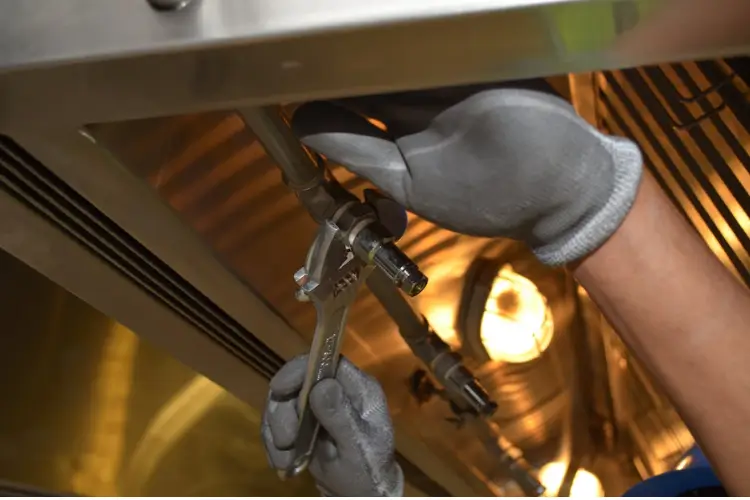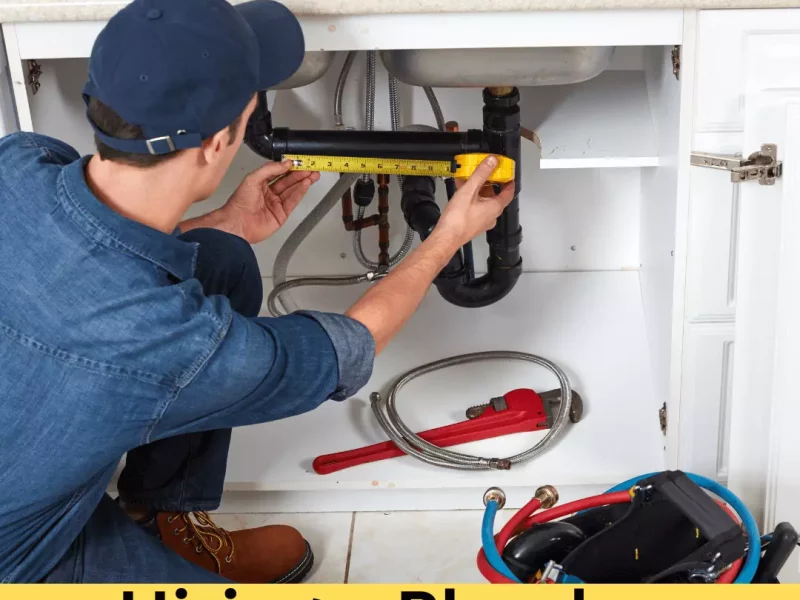A well-operating plumbing system delivers fresh water and efficiently removes waste from your house, thereby maintaining its working order. But when things go bad, plumbing problems may rapidly interfere with your regular activities and inflict major harm. Often disregarded or rejected, certain warning indicators develop into costly repairs. Knowing what to look for helps you to solve possible issues before they get uncontrollable and expensive. The team at https://www.mrrooter.ca/calgary/ will get your system back in perfect working order!
1. Slow or Clogged Drains
More than just a minor annoyance, a slow-draining sink or bathtub can signal a build-up of food particles, hair, or soap scum in the pipes, causing longer drainage times. Although temporary relief may come from using a plunger or drain cleaner, recurrent obstructions indicate a more serious plumbing system issue. Constant sluggish drains point to a blockage farther down the line, maybe including a larger obstacle or maybe tree roots infiltrating the sewage system. Ignoring these indicators results in total obstructions, which causes water to back up and spill into your living areas.
2. Unusual Sounds in Your Plumbing System
If you begin to hear pounding, bubbling, or gurgling noises from your water consumption, your plumbing is trying to warn you. When an obstruction or inadequate venting disturbs the water flow, gurgling noises might indicate trapped air in the pipes. The water draws air in as it strives to move through, producing those characteristic sounds. Often referred to as “water hammer,” binging or rattling noises result from a rapid shift in water pressure. This sudden stop might cause pipes to vibrate and bump against walls, therefore causing possible damage. To resolve this, hiring the Best plumber Prescott (or elsewhere), can promptly help you prevent further damage and ensure the smooth operation of your home’s plumbing systems.
3. Poor House Water Pressure
Low water pressure makes even simple tasks like bathing or dishwashing more time-consuming. There most likely is a serious plumbing system problem if water pressure suddenly lowers across all of your faucets. A concealed leak, sediment accumulation inside the pipes, or problems with the main water line can all cut the water supply. Early low water pressure addressing helps stop more harm. Leaks not only waste water but also compromise the pipes, therefore increasing the likelihood of burst pipes and floods.
4. Sewer Smells Rising from Drains
Sewage smells inside your house point to a major plumbing vent system or sewer line issue. Sewer gasses, with their unique rotten egg smell, should never find their way into your house. You have to act fast the instant you notice this bad stench. Usually indicating a damaged or obstructed sewage line, the smells let gasses escape back into the house. Sewer odors might come from a fractured pipe, incorrect venting, or a blocked drain trap. Apart from the bad smell, contact with sewage gas causes health hazards and might generate dangerous surroundings.
5. Water Stains on Walls and Ceilings
On your walls and ceilings, damp areas, water stains, or peeling paint lead to a concealed plumbing leak. Over time, even a minor, slow leak can soak into the drywall, wood, and insulation, causing structural damage. Water seeping behind walls offers ideal circumstances for mold development, which not only compromises your property but also influences interior air quality. Before you detect any clear indicators, a concealed leak may cause significant damage over several weeks or even months. Call a plumber right away if you find discolored or moist spots.
6. Unexplained Increase in Your Water Bill
A sharp increase in your water bill is unmistakable evidence that your plumbing is broken. A running toilet or concealed leak might waste hundreds of gallons of water per month, even if your water use patterns haven’t changed. Unexpected water use might result from leaky pipes, worn-out fixtures, or broken appliances. A qualified plumber can assist you in finding the leak’s source and do the required plumbing repair to halt water waste. Fast resolution of these problems not only saves money but also helps to preserve water, therefore improving the efficiency of your house.
Conclusion
Identifying the early indicators of plumbing problems enables you to act before they become significant ones. From sluggish drains and odd noises to sewage odors and undetectable leaks, these warning indicators point to a plumbing system that requires maintenance. Stay proactive, take quick care of these problems, and maintain the best possible condition of your plumbing system to provide you with comfort and a house in good running order.




